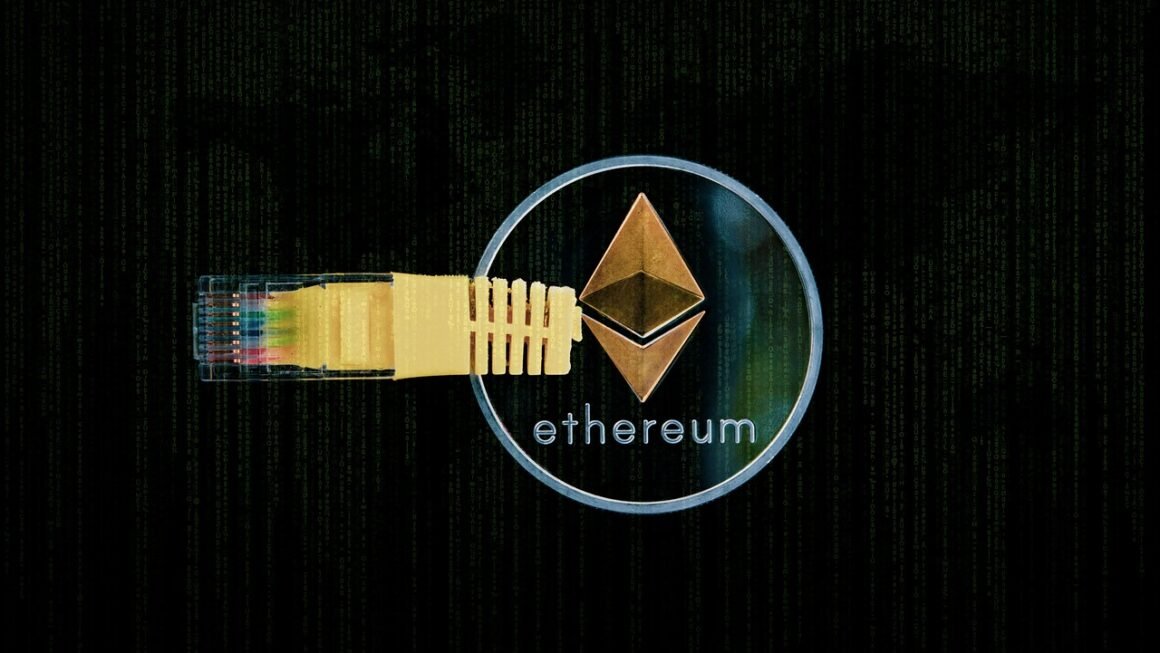Crypto wallets: they’re not exactly the most glamorous part of the cryptocurrency world, but they’re absolutely essential. Think of them as your digital bank accounts for Bitcoin, Ethereum, and all the other digital assets vying for your attention (and investment). Understanding how crypto wallets work, the different types available, and how to choose the right one for your needs is crucial for anyone venturing into the exciting, and sometimes volatile, world of crypto. This guide will demystify crypto wallets, equipping you with the knowledge to securely manage your digital assets.
What is a Crypto Wallet?
Understanding the Basics
A crypto wallet isn’t actually a wallet in the traditional sense. It doesn’t store your cryptocurrency. Instead, it stores the private keys that allow you to access and control your crypto assets on the blockchain. Think of it like a keyring that unlocks access to your digital vault.
- Private Keys: These are secret codes that prove ownership of your crypto assets. Anyone with your private key can access and spend your funds, so keeping them safe is paramount.
- Public Keys: These are derived from your private key and act as your “account number.” You can share your public key with others to receive cryptocurrency.
- Blockchain Interaction: When you send or receive crypto, the wallet uses your private key to create a digital signature that authorizes the transaction on the blockchain.
Analogy: Keys to a Digital Vault
Imagine you have a safety deposit box at a bank (the blockchain). Your crypto wallet holds the keys to that box.
- Public Key: The address of your safety deposit box – people use this to send you items.
- Private Key: The key that unlocks your safety deposit box and allows you to take things out.
- Crypto Wallet: The keyring that holds your private key(s).
Why You Need a Crypto Wallet
You absolutely need a crypto wallet to:
- Store Cryptocurrency: Securely manage your Bitcoin, Ethereum, and other digital assets.
- Send and Receive Crypto: Participate in crypto transactions, whether it’s buying goods and services or trading on exchanges.
- Interact with Decentralized Applications (dApps): Access and use DeFi platforms, NFT marketplaces, and other blockchain-based applications.
- Control Your Funds: Unlike leaving your crypto on an exchange, you have full control over your private keys and your assets.
Different Types of Crypto Wallets
Choosing the right wallet depends on your security needs, how often you plan to use your crypto, and your technical expertise. There’s no “one-size-fits-all” solution.
Hot Wallets vs. Cold Wallets
This is the most fundamental distinction.
- Hot Wallets: Wallets connected to the internet. They’re convenient for frequent transactions but are more vulnerable to hacking.
Examples: Desktop wallets, mobile wallets, and web wallets.
Risk: Since they are connected to the internet, the private keys could be exposed in a cyber attack.
- Cold Wallets: Wallets that are offline and disconnected from the internet. They offer the highest level of security but are less convenient for everyday use.
Examples: Hardware wallets and paper wallets.
Benefit: Offers maximum security as the private keys are never exposed to the internet.
Desktop Wallets
- Description: Software you install on your computer.
- Pros: More secure than web or mobile wallets, offer good control.
- Cons: Vulnerable if your computer is compromised, can be bulky.
- Example: Exodus, Electrum (for Bitcoin).
Mobile Wallets
- Description: Apps you download to your smartphone.
- Pros: Convenient for on-the-go transactions, user-friendly.
- Cons: Less secure than hardware wallets, risk of phone loss or hacking.
- Example: Trust Wallet, MetaMask (primarily for Ethereum and ERC-20 tokens).
Web Wallets
- Description: Accessed through a web browser.
- Pros: Easy to use, accessible from any device.
- Cons: Least secure option, rely on the security of the website provider.
- Example: Coinbase Wallet (though Coinbase itself is an exchange, their wallet offering is a separate product). It’s crucial to research the provider’s security measures.
Hardware Wallets
- Description: Physical devices that store your private keys offline.
- Pros: Most secure option for storing large amounts of crypto, resistant to malware.
- Cons: More expensive, requires physical access to make transactions.
- Example: Ledger Nano S Plus, Trezor Model T. These devices digitally sign transactions offline.
Paper Wallets
- Description: Printing your public and private keys on a piece of paper.
- Pros: Free, highly secure if stored properly.
- Cons: Easy to damage or lose, cumbersome to use.
- Usage: A good option for long-term storage of crypto you don’t plan to access frequently. Ensure the paper is stored securely and ideally backed up.
Choosing the Right Crypto Wallet
Selecting the best crypto wallet for you depends on several factors:
Security Considerations
- How much crypto are you storing? If you have a significant amount, a hardware wallet is highly recommended.
- How often do you transact? If you need frequent access, a mobile wallet might be more suitable.
- What are your technical skills? Some wallets are more user-friendly than others.
Wallet Features
- Multi-currency support: Does the wallet support the specific cryptocurrencies you want to store?
- User interface: Is the wallet easy to navigate and understand?
- Two-factor authentication (2FA): Does the wallet offer 2FA for added security?
- Backup and recovery options: How easy is it to recover your funds if you lose your wallet?
- Customer support: Is there reliable customer support available if you need help?
Practical Examples
- Scenario 1: Hodling Bitcoin Long-Term: A hardware wallet, like Ledger Nano S Plus, is an excellent choice for safely storing a large amount of Bitcoin for the long term. Consider pairing it with a passphrase for added security.
- Scenario 2: Daily Trading on Ethereum: MetaMask, as a browser extension, is a suitable option for interacting with DeFi platforms and quickly making trades on Ethereum. However, only keep smaller amounts in this wallet.
- Scenario 3: Storing a small amount of various Cryptocurrencies: Trust Wallet is a mobile wallet that supports many cryptocurrencies. It’s easy to use and allows you to store several assets, though ensure that the device it is installed on is secure.
Things to Avoid
- Storing all your crypto in one wallet: Diversify your storage to minimize risk.
- Sharing your private keys with anyone: This is the cardinal rule of crypto security.
- Using unsecured public Wi-Fi for transactions: Your data could be intercepted.
- Clicking on suspicious links or downloading software from untrusted sources: Phishing scams are rampant in the crypto space.
Security Best Practices
Protecting your crypto assets is paramount. These are non-negotiable security measures.
Securing Your Private Keys
- Never share your private keys with anyone.
- Store your private keys securely offline.
- Use a strong password for your wallet.
- Enable two-factor authentication (2FA) whenever possible.
- Consider using a passphrase in addition to your seed phrase. This acts as an additional layer of security, adding another word to your recovery phrase.
Backup and Recovery
- Back up your wallet regularly.
- Store your backup in a safe and secure location, separate from your primary device.
- Test your recovery process to ensure you can restore your wallet if needed.
- Do not take photos or screenshots of your seed phrase – write it down and store it securely.
Phishing Awareness
- Be wary of phishing scams. Never click on suspicious links or enter your private keys on untrusted websites.
- Double-check the URL before entering any sensitive information.
- Verify the sender of any email or message before clicking on links or attachments.
- Enable anti-phishing software and browser extensions.
Regular Software Updates
- Keep your wallet software up to date. Updates often include security patches that protect against known vulnerabilities.
- Update your operating system and antivirus software regularly.
- Be cautious of fake wallet apps. Only download wallets from official sources.
Conclusion
Choosing and securing your crypto wallet is a critical step in your crypto journey. By understanding the different types of wallets available, considering your security needs, and following best practices, you can confidently manage your digital assets and participate in the exciting world of cryptocurrency. Always remember, your private keys are the keys to your kingdom – protect them fiercely! By taking a proactive approach to security, you can minimize risks and enjoy the benefits of decentralized finance.



